Apps cut crime in Avon and Somerset, claims police chief
- Published
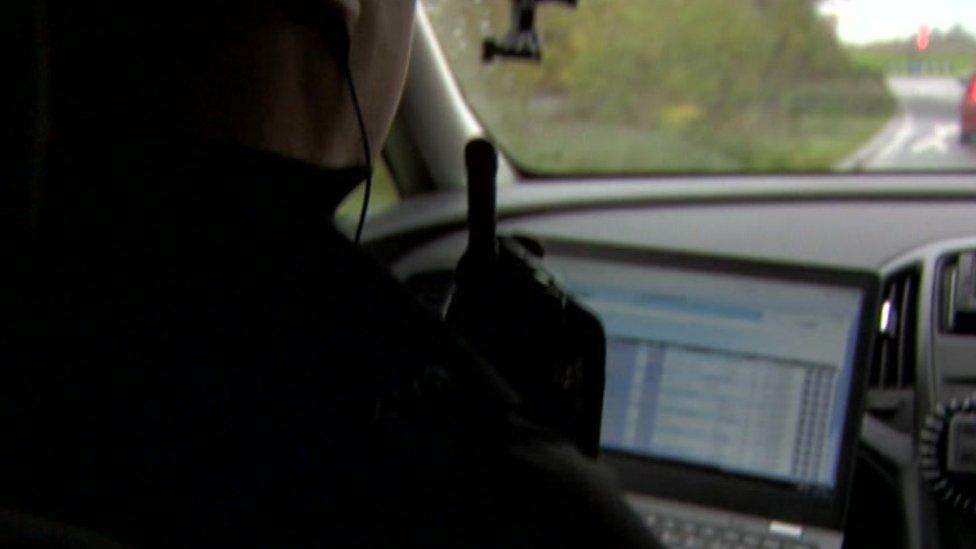
Front-line officers are now equipped with laptops, body-worn cameras and mobile phones to use while out on the beat.
A police force has rolled out 60 apps to help prevent crime amid a drop in budgets and officer numbers.
Avon and Somerset Police has been using predictive data to anticipate crime hotspots and tackle repeat offenders.
Its chief constable said officers faced a "blizzard of demand" daily but use of technology had led to a reduction in crime and anti-social behaviour.
The Police Foundation said the force was "well in advance" of many others in the use of predictive software.
Mr Marsh said the apps should help prevent future cases similar to the killing of Bijan Ebrahimi, a disabled Iranian refugee who was beaten to death on a Bristol estate in 2013.
The force was found to be institutionally racist, external in how it handled his numerous complaints in the seven years leading up to his murder.
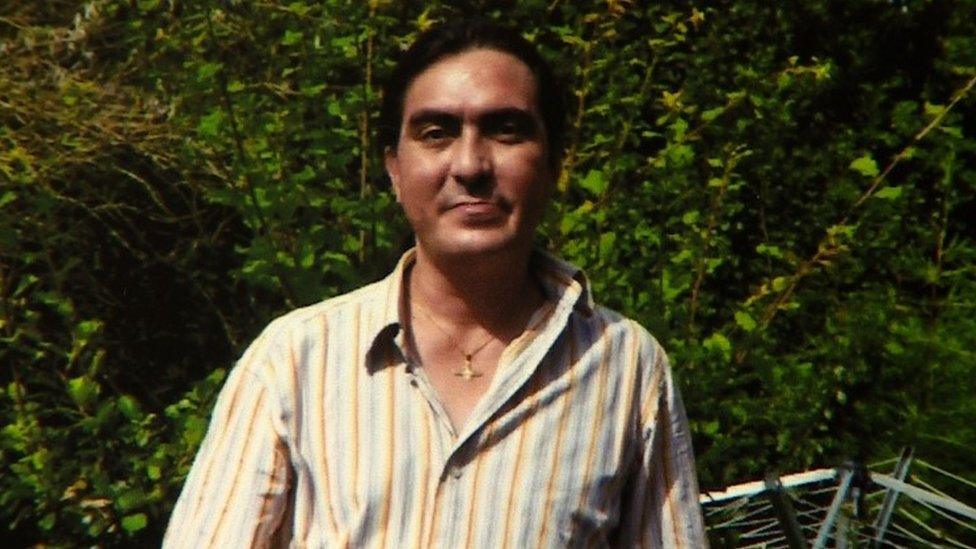
Bijan Ebrahimi was brutally murdered outside his flat in Brislington in July 2013
After the report's publication, Mr Marsh vowed to Mr Ebrahimi's sisters that the force would learn from its mistakes and make changes in how it dealt with vulnerable people.
And he said he was confident the software, which was introduced in 2016, identified vulnerable victims and risk of harm in a way that was not possible then.
It uses a combination of artificial intelligence and statistics to assess the risk of someone committing or becoming a victim of gun or knife crime, as well as the likelihood of someone falling victim to modern slavery.
The technology generates a bespoke file in seconds - a previously laborious job, which would have tied-up officers for days or weeks at a time and taken them off the beat.
Andrew Roebuck, Avon & Somerset Police Federation chair, said the force was "leading the way" in predictive policing.
"I think other forces are a bit jealous," he said.
"It's a learning curve for the organisation and it's working well with the officers."
'Tipping point'
Rick Muir, director of the Police Foundation, said while all forces increasingly relied on predictive software, many were still working with unlinked databases, which were incompatible.
He said: "The way in which Avon & Somerset have created a very usable interface for the officers is well in advance of what I've seen in some other places."
Since 2010 the force has had its budget reduced by £78m, with the number of police officers cut by 655, leading Mr Marsh and its police and crime commissioner to declare it at "tipping point".
Front-line officers are now equipped with laptops, body-worn cameras and mobile phones to use while out on the beat.
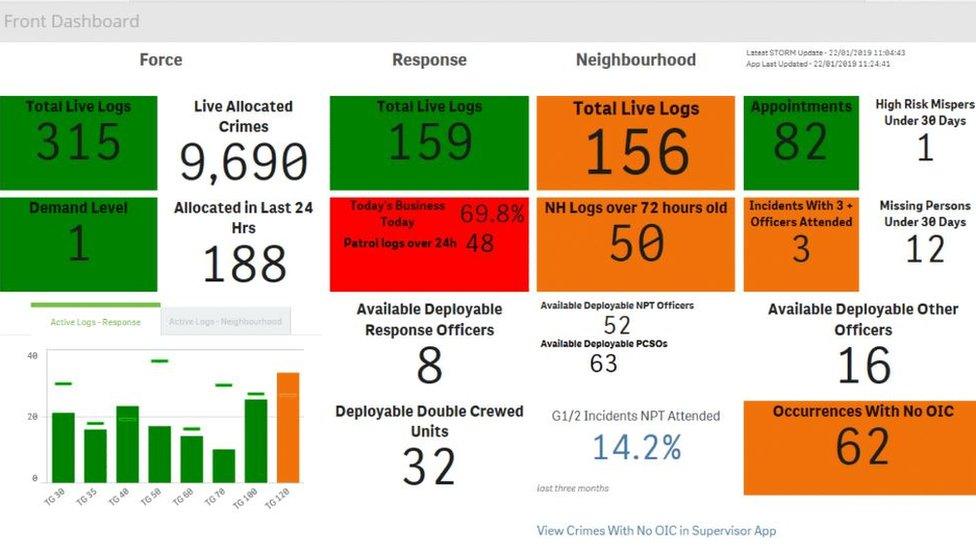
The software used by Avon and Somerset Police can generate a bespoke file in seconds
"There is a blizzard of risk and demand facing our officers but we don't want a case like Mr Ebrahimi's to happen again," said Mr Marsh.
"The problem-solving apps direct us to repeat offenders, problem areas and vulnerable people.
"What we've started to see is a reduction in incidents of repeat crime and anti-social behaviour around those crime hotspots because of what we are doing."
Some of the apps officers have been using include:
A demand management app that shows who is driving the most demand on police in different areas
A persistent callers app to show who keeps dialling 999 and 101, and why
An offender management app that monitors and tracks potential repeat offenders
A supervisor app to help managers be more efficient with the use of staff
The result is "one voice of truth" that officers could rely on, said Becky Tipper, who manages the control centre where 999 and 101 calls are handled at force HQ.
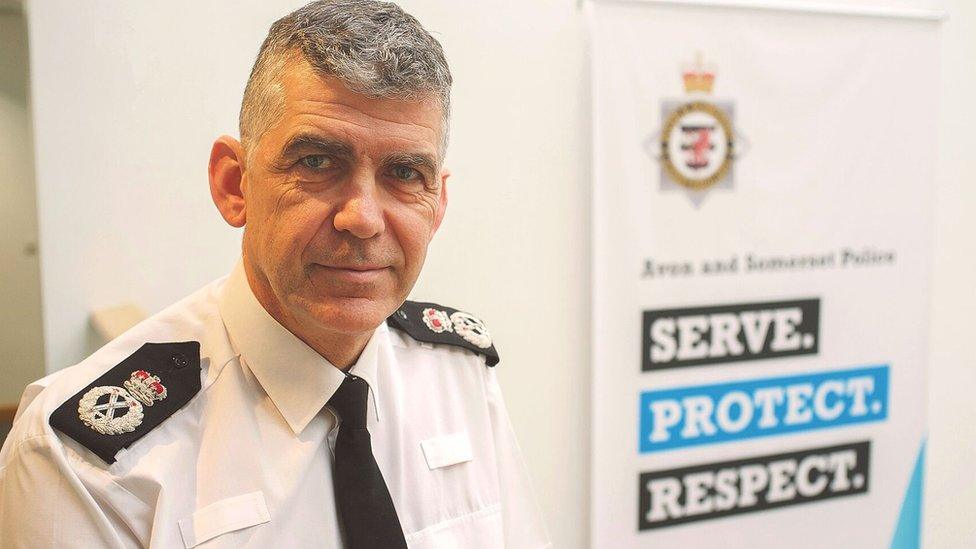
Chief Constable Andy Marsh said he wanted to do the best he could with the resources he had
She said: "For staff all across the organisation it has completely revolutionised what we are doing.
"It's part of daily business now to use the data that's available to us, it's reduced the need for a lot of manual work - there's no human intervention in a lot of it so that data is collected from the computer systems in one place and it's one voice of truth - one system with one result."
Since the software was introduced the force has gone from being one of the worst-performing for how long it takes to answer 999 calls to one of the best.
The head of its control centre said it now had a 99.9% success rate on 999 calls answered within 10 seconds and helped other over-stretched forces when they were experiencing high call rates.
The force's business intelligence manager Jonathan Dowey said the data helped officers make better policing decisions.
"We don't want to be attending the same sort of incidents day after day, we want to problem-solve them and prevent them.
"What we are not doing here is automating policing, instead we are empowering and augmenting police officers - giving them accurate and timely data to support their decisions."
Mr Marsh said the data was about doing the best he could with the resources he had, although he was hopeful officer numbers could be boosted.
The force is hoping a rise in its council tax precept for 2019-20 will be approved to release funding for 100 extra officers, who would be tasked with tackling knife crime, drug dealing and burglaries.
The most recent crime figures show violent crime in the UK is up 19%.
- Published26 November 2018
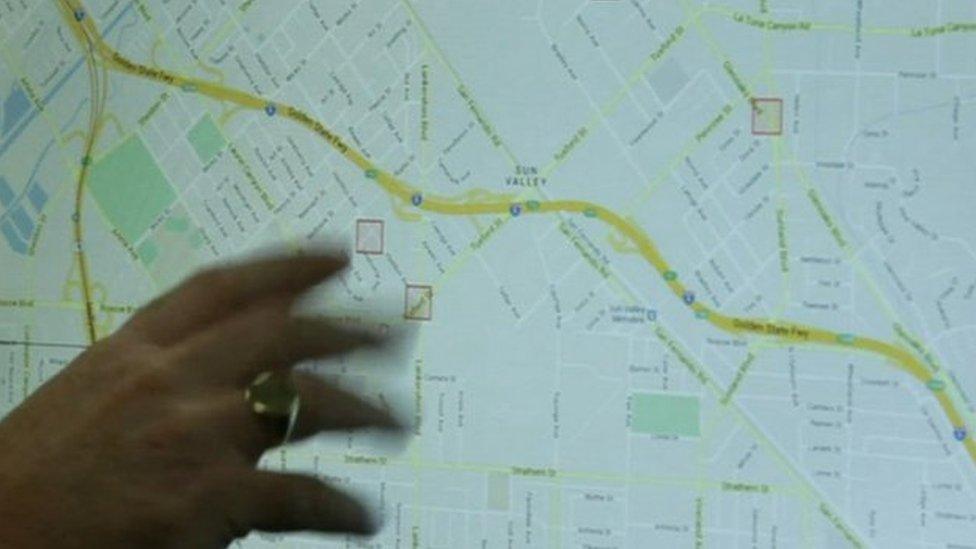
- Published30 October 2018

- Published18 December 2017
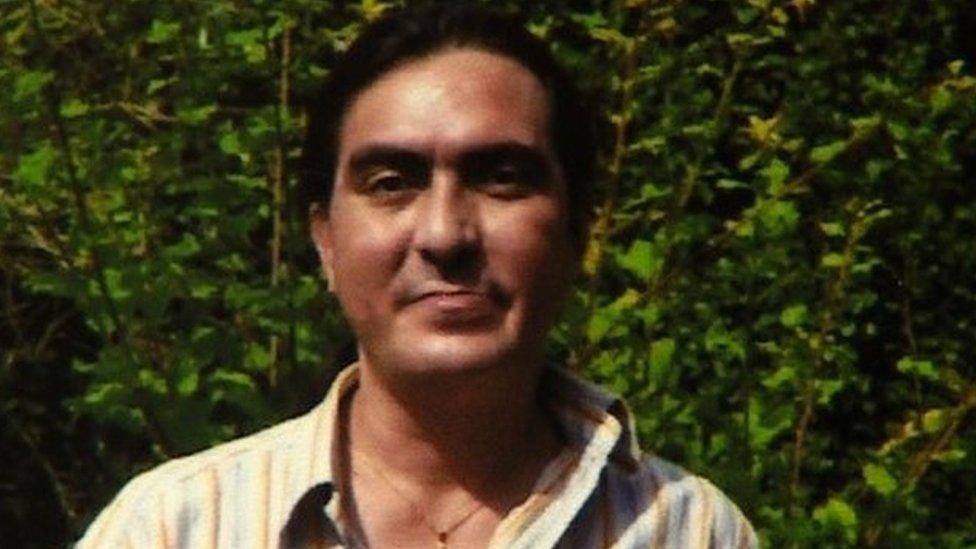
- Published16 November 2017

- Published10 May 2017

- Published16 February 2017
